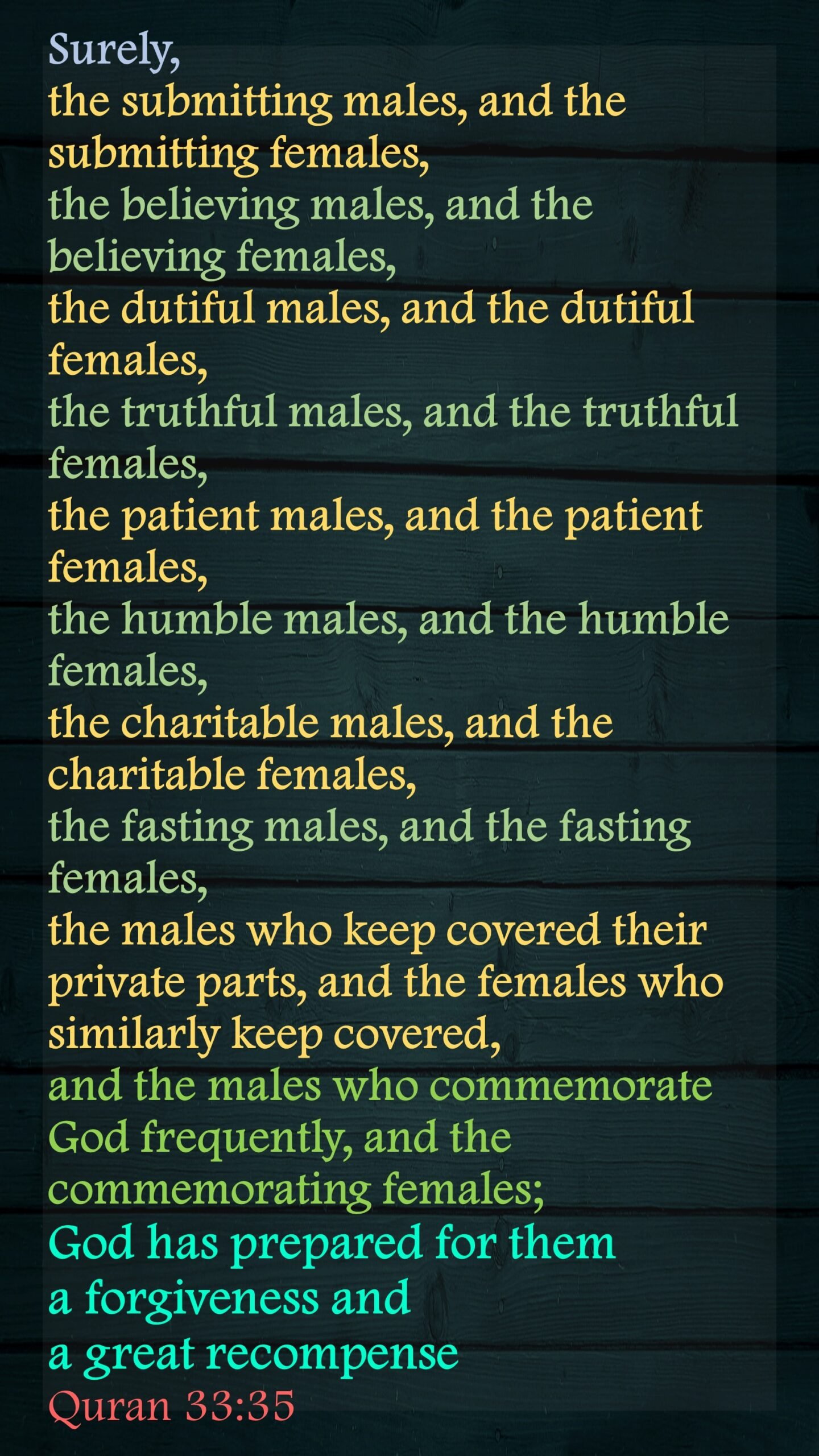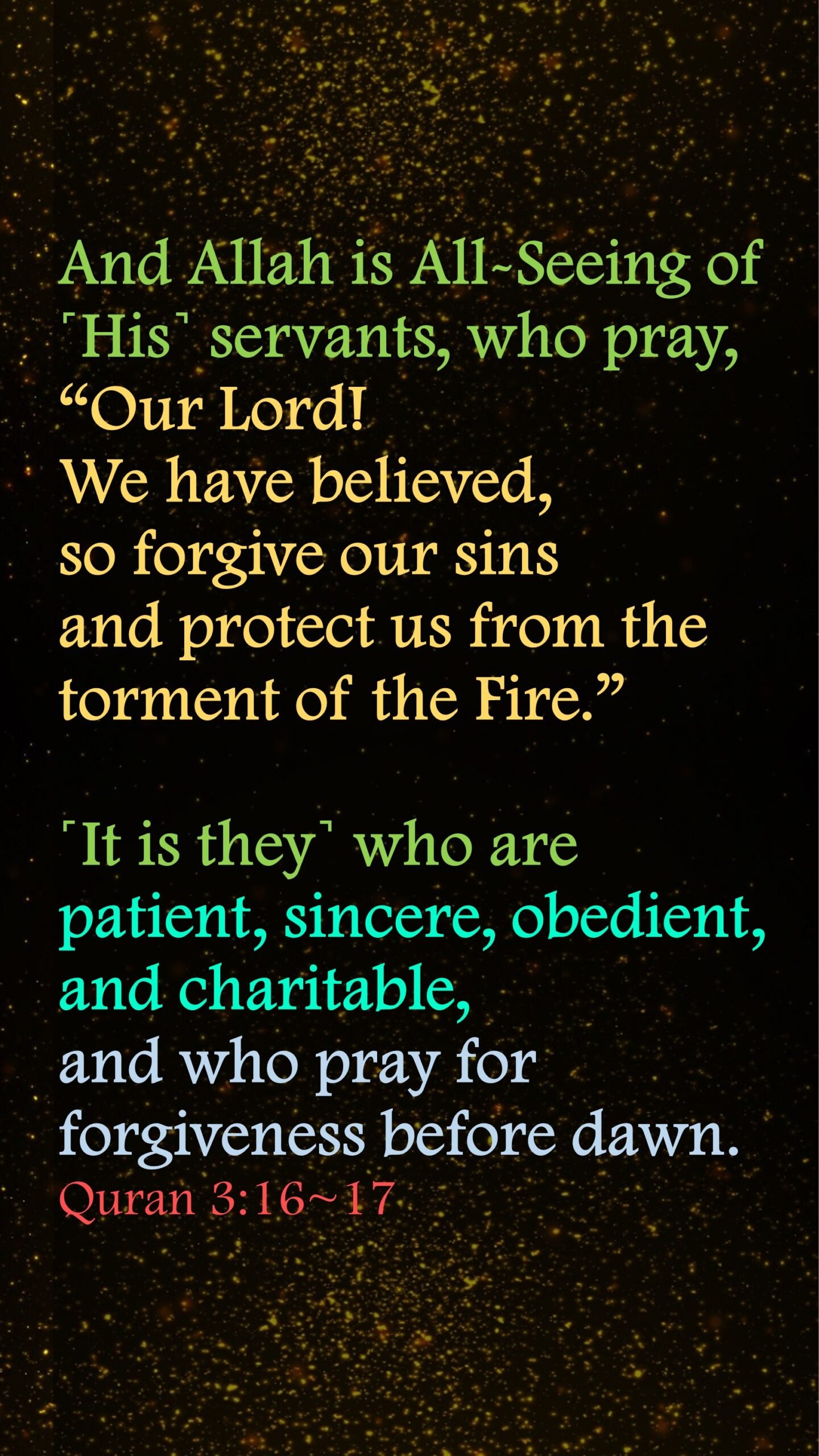16
Mar, 2025
3
May, 2024
Quran 12:88
Islam, Quran Allah, ayat, charitable, chief minister, coins, daily, family, full, give, hardship, inspirations, islam, islamic, Jacob, Joseph, Muhammad, please, provide, quran, Quran Chapter 12, reward, supplies, Surah, worthless, Yaqub, Yusuf
23
Nov, 2023
Quran 92:5~11
Islam, Quran al-Layl, Allah, ayat, belief, believer, charitable, daily, denial, denies, deny, facilitate, finest, firm, hardship, hell, indifferent, inspirations, islam, islamic, mindful, Muhammad, night, path, quran, reward, staunch, Surah, tumble, Way of Ease, wealth
30
Dec, 2022
Quran 33:35
Islam, Quran Allah, ayat, believe, Chapter 35, charitable, commemorate, cover, daily, dutiful, equal, fasting, female, forgive, forgiveness, God, great, humble, inspirations, islam, islamic, male, Men, parts, patient, prayer, prepare, private, quran, recompense, reward, Surah, truthful, women
10
Jul, 2022







